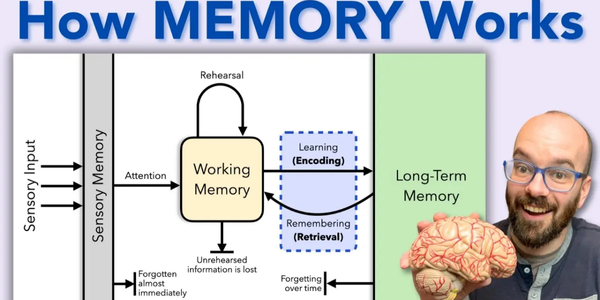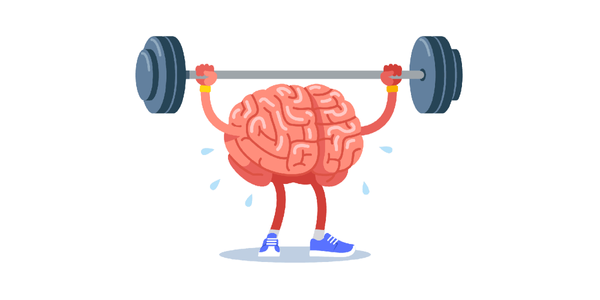Have you ever walked into a room and forgotten why you were there? Or struggled to remember someone’s name just minutes after an introduction? You’re not alone. In today’s distraction-heavy world, memory lapses are increasingly common. But what if you could train your brain to retain information better?
Whether you’re a student studying for exams, a professional juggling projects, or someone simply trying to stay sharp with age, improving memory retention is both achievable and essential. In this guide, we’ll explore how to improve memory retention using research-backed strategies, real-world examples, and daily practices.
Why Memory Retention Matters
Memory isn’t just about recalling facts — it’s the foundation of learning, decision-making, and even our personal identity. Better memory means:
-
Improved productivity at work or school
-
Stronger relationships
-
Sharper mental agility with age
-
Greater confidence in social and professional settings
Now, let’s dive into practical ways to strengthen your memory.
1. Understand How Memory Works
To improve memory retention, it helps to know how memory functions. Your brain processes information in three stages:
1.1 Encoding
This is when new information is initially learned. Paying attention is crucial here — if your brain isn’t focused, the information may never even be stored.
1.2 Storage
Once encoded, information is stored in the short-term or long-term memory. Long-term memory is what we aim to strengthen.
1.3 Retrieval
This is recalling the stored information when needed. If the encoding and storage are weak, retrieval becomes difficult.

2. Practice Active Learning
Passive reading won’t do much for memory. Instead, engage with the material actively:
-
Teach someone else what you’ve learned.
-
Use the Feynman Technique: explain concepts in simple terms.
-
Ask questions and quiz yourself frequently.
2.1 Spaced Repetition
A proven technique where you review material over increasing intervals. Apps like Anki or Quizlet use this method effectively.
3. Get Quality Sleep
Sleep is crucial for memory consolidation. During deep sleep, the brain processes and stores the day’s information.
-
Aim for 7–9 hours per night.
-
Maintain a consistent sleep schedule.
-
Avoid screens and caffeine 1–2 hours before bed.
4. Feed Your Brain Right
Nutrition plays a big role in cognitive function. Some memory-boosting foods include:
-
Fatty fish (like salmon) – rich in Omega-3s
-
Blueberries – packed with antioxidants
-
Leafy greens – loaded with folate and vitamin K
-
Turmeric – contains curcumin, which crosses the blood-brain barrier
4.1 Stay Hydrated
Even mild dehydration can impair short-term memory and attention. Aim for at least 8 glasses of water daily.
5. Move Your Body
Physical activity increases blood flow to the brain and improves memory.
-
Go for a brisk walk daily.
-
Try aerobic exercises like swimming, dancing, or cycling.
-
Consider yoga or tai chi, which combine movement with mindfulness.
Real-World Example: A 2017 study found that people who walked briskly for 30 minutes, three times a week, saw significant improvement in hippocampus volume — a brain area crucial to memory.

6. Use Mnemonic Devices
Mnemonics are memory aids that simplify complex information. Try:
-
Acronyms (e.g., HOMES for the Great Lakes)
-
Rhymes and songs
-
Visualization techniques (picture what you want to remember)
6.1 The Method of Loci
Also called the memory palace, this ancient Greek technique involves visualizing items placed in familiar locations. It’s especially useful for speeches or long lists.
7. Minimize Multitasking
Constant task-switching weakens attention and memory. Instead:
-
Focus on one task at a time.
-
Use the Pomodoro Technique — 25 minutes focused work, 5-minute break.
-
Keep distractions (notifications, noise) to a minimum.
8. Train Your Brain Daily
Just like muscles, your brain benefits from regular workouts.
8.1 Try Brain-Boosting Games
-
Sudoku, crosswords, or chess
-
Lumosity or Elevate apps
-
Memory card matching games
8.2 Learn New Skills
-
Pick up a new language
-
Take music lessons
-
Try cooking complex recipes

9. Practice Mindfulness and Meditation
Chronic stress negatively affects memory. Meditation helps regulate stress and enhances concentration.
-
Mindfulness meditation has been shown to improve working memory.
-
Start with 10 minutes daily using apps like Headspace or Calm.
-
Focus on your breath, body scan, or a mantra.
10. Build Strong Social Connections
Social interaction stimulates brain areas involved in memory and emotion. Isolation, on the other hand, can lead to cognitive decline.
-
Call or meet a friend weekly.
-
Join clubs or group activities.
-
Volunteer or attend community events.
Story Hook: A Harvard study spanning 75+ years found that strong social bonds are one of the biggest predictors of mental and emotional well-being — including memory.
11. Organize Information Strategically
Break complex info into manageable chunks.
-
Use chunking: Remember “149217761812” as “1492, 1776, 1812.”
-
Create mind maps to visualize connections.
-
Use color-coding, highlighting, or diagrams.
11.1 Digital Tools for Organization
-
Notion or Evernote for notes
-
Trello for workflows
-
Google Keep for quick reminders
12. Limit Alcohol and Avoid Smoking
Both alcohol and smoking impair memory and cognitive function.
-
Excess alcohol disrupts REM sleep and hippocampus function.
-
Smoking reduces oxygen to the brain and accelerates decline.
Cutting back or quitting altogether can lead to almost immediate improvements in focus and memory.

Final Thoughts: Start Small, Stay Consistent
Improving memory retention isn’t about making one huge change — it’s about consistent, sustainable habits. Start with just one or two strategies from this list, and gradually build them into your routine. Over time, you’ll notice sharper recall, deeper focus, and a more agile mind.
Call to Action
What memory technique has worked best for you? Share your experience in the comments below!
📚 Want more brain-boosting content? Check out our guides on:


